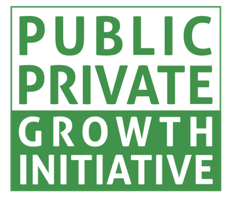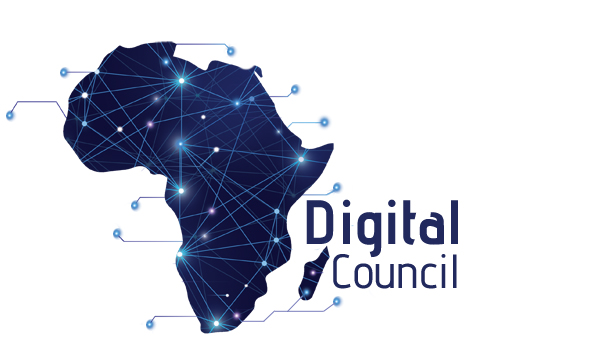

SA Youth connects young people to work and employers to a pool of entry level talent.
Are you a work-seeker?
The impact of COVID-19 on the South African economy is hard to overstate. GDP growth is projected to hit a 90-year low, and youth unemployment is at its highest ever rate of 63%. The effects of the pandemic may strip away critical gains made in the last 25 years in the fight against poverty and inequality. Despite modest recovery since hard lockdown regulations were lifted, there is still a long way to go.
In this edition of Breaking Barriers, we explore pragmatic solutions for driving recovery at the level of economic sectors. The evidence shows that individual companies – no matter how strong – can rarely rebound on their own. And, at the other end of the spectrum, national plans are often so high-level, they become hard to implement. We have seen that sector-level coordination can bring together disparate actors, indeed even competitors, and direct them towards tangible outcomes and sustained growth. We share three insights drawn from Harambee’s experience with our partners. For more, see The Harambee Approach: a toolkit and case study for growing sectors inclusively.
Since its founding 10 years ago, Harambee has partnered with over 500 businesses across all sectors of the South African economy to pathway excluded young into jobs. Employers who have walked this journey – including companies like Nando’s, Hollard, Standard Bank, Unilever, Merchants – have acquired high-potential talent in more inclusive ways, and inspired others to follow their example. Many of these companies, and hundreds more like them, changed or even dropped unnecessary or exclusionary requirements to access a larger pool of applicants. Examples ranged from thinking hard about when a specific degree is really required to do the job (as opposed to using it as an easy way of filtering applicants) to measuring learning potential and problem solving (not just relying on school-based math marks). Yet, when these companies try to scale up what they are doing, they often run into barriers that they can’t solve on their own – like trying to modernise accreditation requirements for their jobs or improving broadband access for their staff to work from home. We have seen that the scale of the challenge is such that even well-resourced and well-intentioned companies can make little headway against these systemic barriers like poor education systems, increasing transport costs, and high data costs that make it hard for excluded youth to find a foothold in the labour market.
Figure 1: Inclusionary hiring recognises that school results are not always a predictor of performance
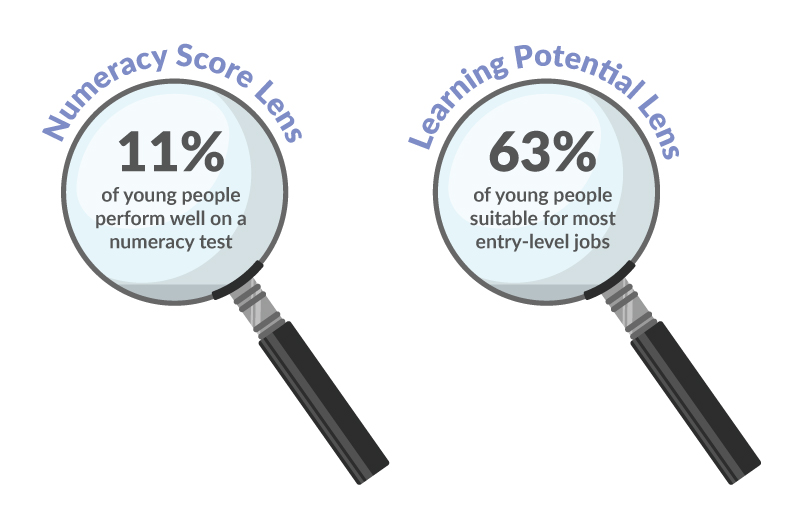
Source: Harambee Youth Employment Accelerator, 2019
Individual companies are part of a broader ecosystem. Ecosystem facilitation in the natural or biological world refers to the interactions that benefit at least one—and often more than one—member of the ecosystem. In market ecosystems, however, these interactions do not happen automatically. Organisations typically compete for scarce resources, including labour and capital, and generally are not incentivised to taking a broader view beyond their own needs. To translate ambitious plans to concrete action, however, we need to generate returns beyond individual companies alone, while driving a mutually beneficial path to growth. That is the basis of a sector-level approach. Sector-level coordination supports industries to organise themselves into engines of inclusive growth, by harnessing the mutual interests of all players—even competing companies—to increase total investment, translate it into concrete jobs and fill them with skilled workers.
One example of our success is in the Global Business Services sector, which ranges from front-office call centres and customer service to back-office legal, technical and accounting services—an industry that offers good jobs for young people (87% of new recruits in 2019 were aged 18-35).
Coordination between business and government using sector-level facilitation has delivered concrete outcomes even in the face of the pandemic. While lockdowns the world over forced call centres to halt operations, timely sector-based intermediation motivated the South African government to categorise them as “essential services,” allowing them to support critical business functions and economic recovery. Many jobs were saved, and in fact, ~3700 new jobs were generated in this industry between July-September 2020 alone, where all other industries were hard hit. By actively shaping the incentives of individual organisations and institutions, this sector is on track to create half a million new jobs by 2030.
Figure 2: Jobs serving a global export market can be scaled ten times
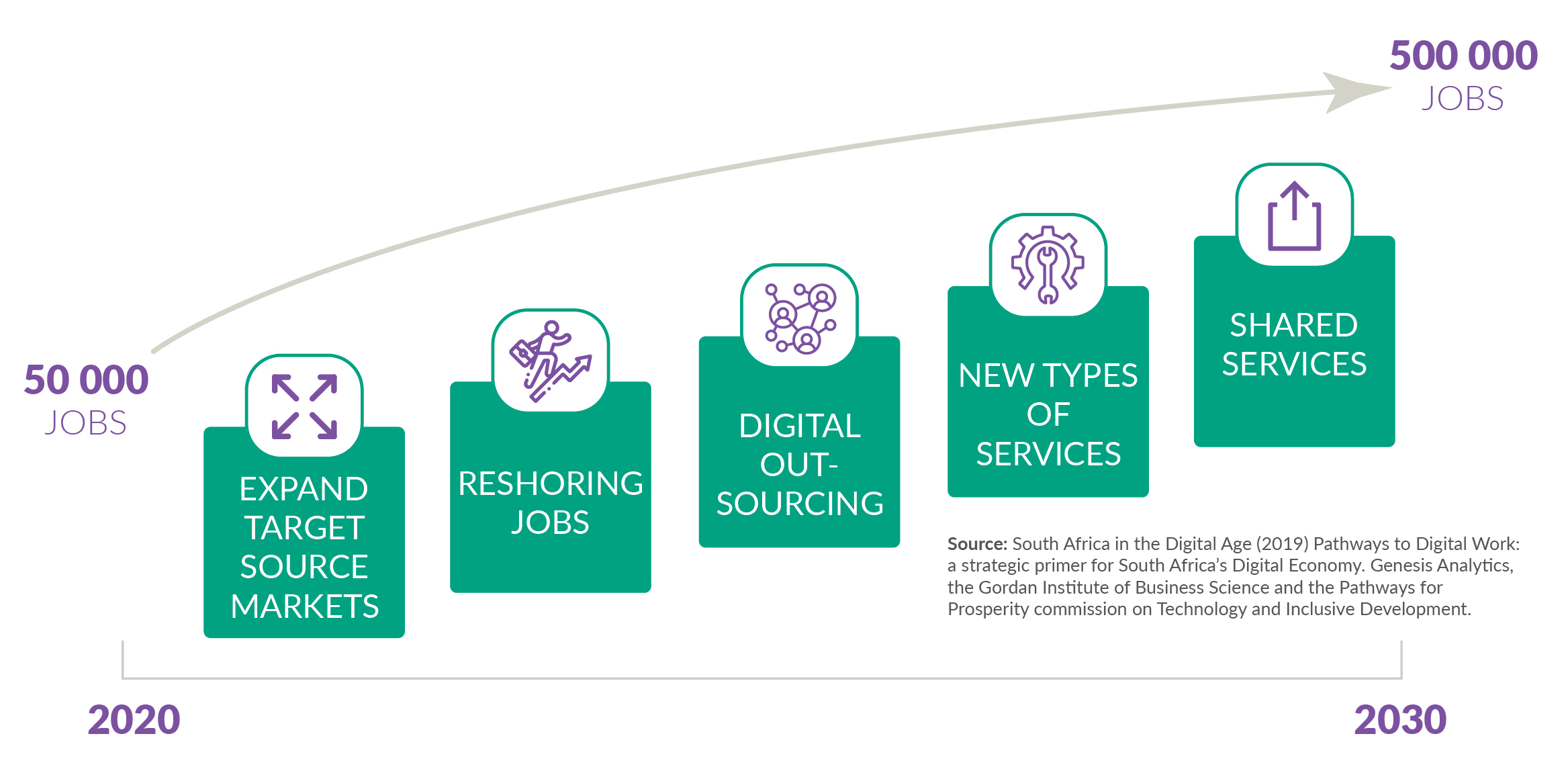
Active sector coordination begins by identifying the opportunity, convening the right set of stakeholders, and executing quick wins and building on the momentum. To shift these bold plans for economic recovery into reality—we need to apply lessons learned to other priority sectors. The Public Private Growth Initiative (PPGI) has identified opportunities in a range high potential sectors such as tourism, agriculture, manufacturing, installation repair and maintenance, and automotive. By actively shaping these sectors with a focus on inclusion, growth and mutually beneficial gains, we could generate up to 500,000 new jobs in the formal and informal economy.
There are early learnings from the agricultural sector. Despite policy challenges, the sector grew by 13.1% in 2020. The Agricultural Development Agency (AGDA), formed in 2020 to provide access to finance, skills and technical expertise for black commercial farmers, has already identified a pipeline of catalytic projects such as township focused agricultural skills development programmes with innovative off take mechanisms.
These projects are innovative, scalable, replicable and generate shared wealth for participants. They provide opportunities for people to participate in work in a variety of ways, in dignity, without the traditional employer-employee relationships typical of the past.. Encouraged by the work of the ADGA, PPGI is supporting the organisation to expand its services; identify new opportunities; and work hand in hand with various government departments and programmes.
The automotive manufacturing sector is another proof point – collectively, at a sectoral level, and supported by carefully crafted policy and the establishment of a R6 bn industry led transformation fund, the sector is focused on building an inclusive South African value chain by partnering on skills development, expanding township opportunities and developing the component manufacturing industry.
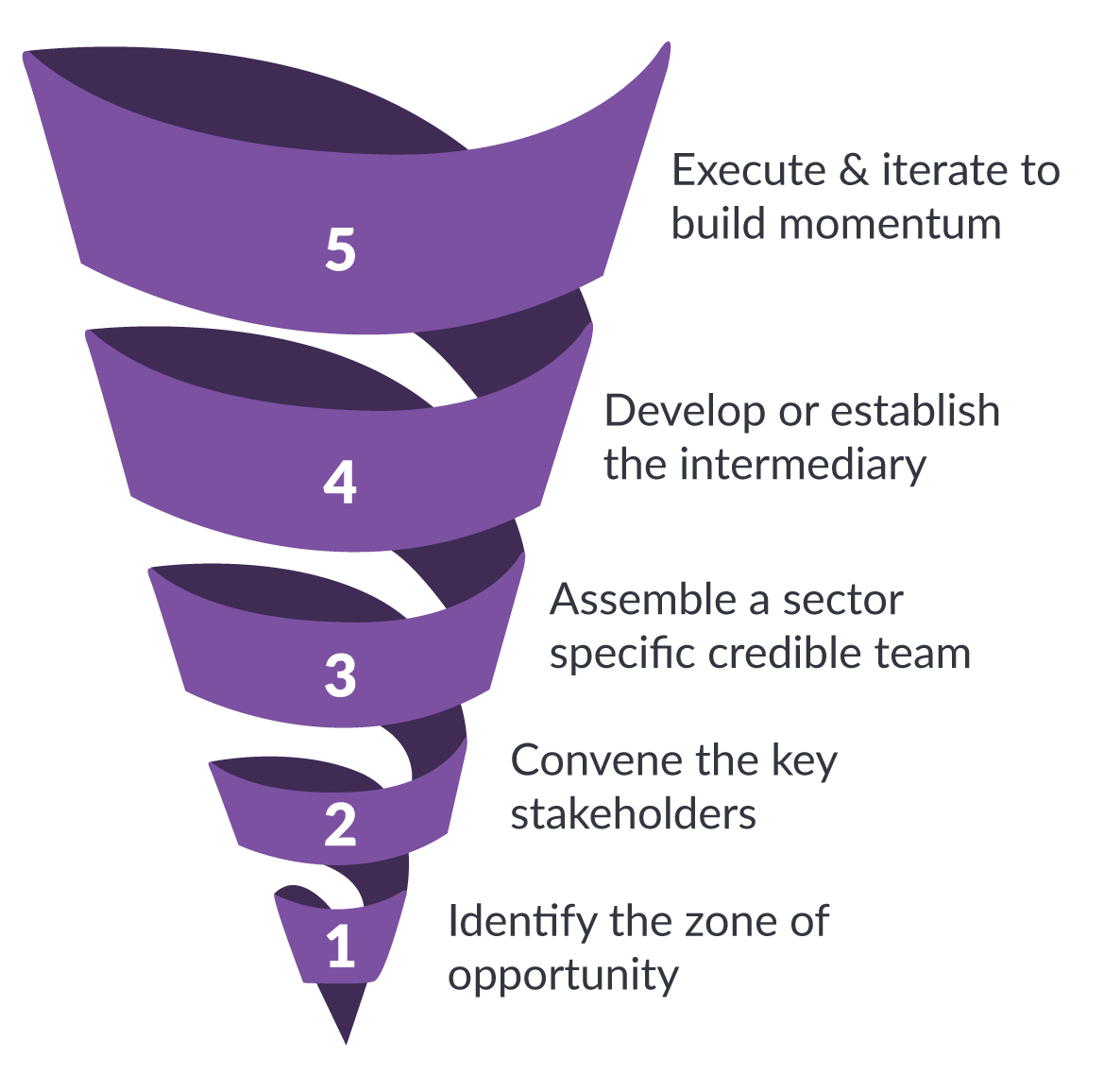
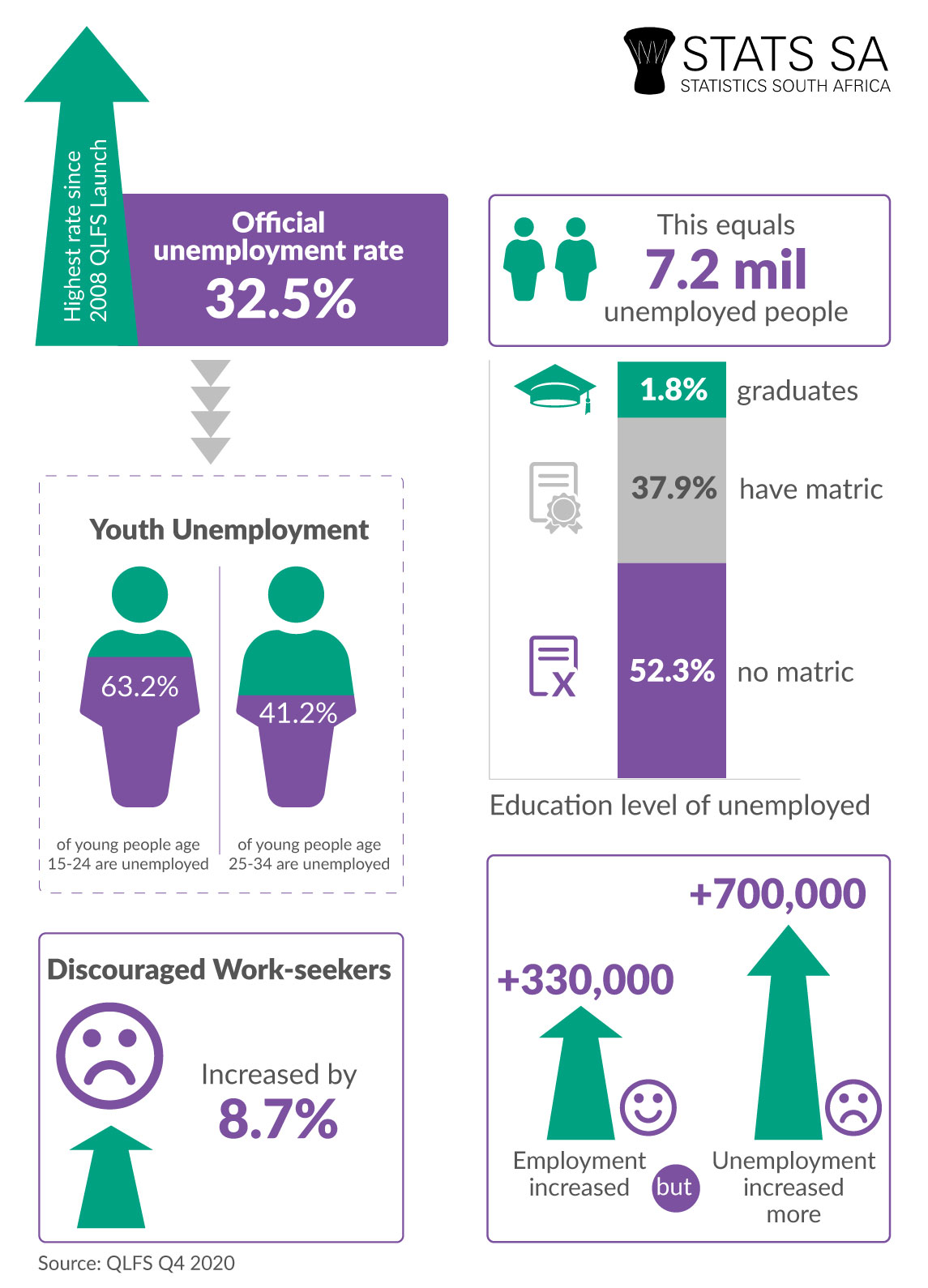
* Youth includes all 18 – 34-year olds

